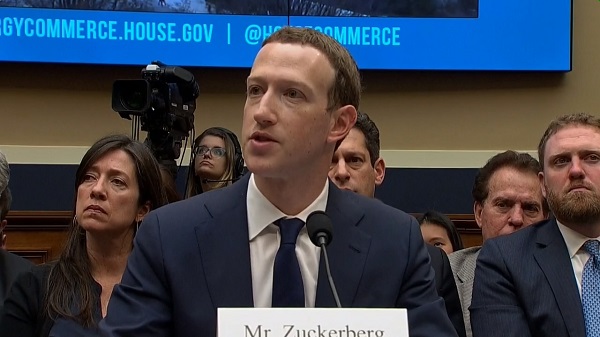 Facebook’s founder and CEO Mark Zuckerberg admitted in Congress last week that Facebook is spying on non-users by recording their web browsing history. Zuckerberg’s claim that people who don’t have accounts are still being tracked by the world’s largest social network sparked new privacy concerns.
Facebook’s founder and CEO Mark Zuckerberg admitted in Congress last week that Facebook is spying on non-users by recording their web browsing history. Zuckerberg’s claim that people who don’t have accounts are still being tracked by the world’s largest social network sparked new privacy concerns.
In March, a monster scandal hit Facebook following multiple media reports that the tech giant handed the personal data of more than 50 million of Americans to a U.K.-based consulting firm Cambridge Analytica. It was also revealed that the firm had ties to the Trump campaign during the 2016 presidential race.
On Wednesday, the Facebook boss told Rep. Ben Luján that the social media giant is harvesting “data of people who have not signed up for Facebook” for security reasons. The revelation was met with protests, with privacy advocates and lawmakers urging Facebook to develop a tool that can tell non-users what data the site has on them.
Facebook is Spying on Non-users and Not Willing to Stop
“We’ve got to fix that,” the congressman grilling Zuckerberg said. Luján even pushed for a disclosure that could negatively impact Facebook’s ad revenue. The Facebook boss did not side with Luján on the proposal, and Friday he said he doesn’t plan to design such tool for people who don’t have a Facebook account.
Privacy advocates noted that Zuckerberg has not revealed what his company is doing with the information on non-users.
The site accidentally tracks non-users when the friends of those Internet users post info about them on the social media platform. However, Facebook is spying on non-users via small bits of software called “cookies” that the website installs on their devices whenever they access a Facebook page. This happens even when those users don’t have a Facebook account.
Cookies keep a log of what sites and services the users and non-users are accessing across the Internet and beam the findings to Facebook.
Image Source: Printscreen

Leave a Reply
You must be logged in to post a comment.